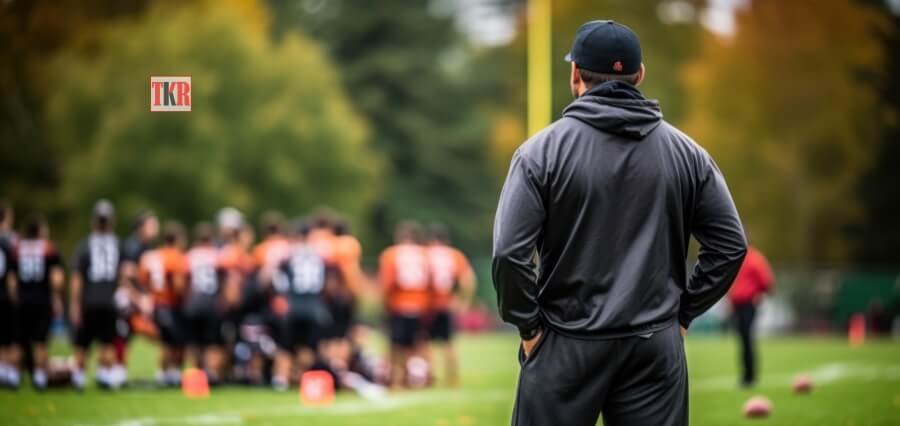Fueling Dreams
Young active athletes are entering competitive courts, fields, and arenas with proficiency, enthusiasm, and resilience all over the playing grounds. Behind this increase rears several sporting administrators who are committed to moulding ability into excellence. They do much more than organising drills and training routines; they establish the atmosphere where the support for discipline, resilience, and ambition becomes the thing that grows in trying players. Such leaders know that sports are not merely meant to win titles, but they can also make people ready to face challenges, both on and off the field.
Building Foundations of Discipline and Skill
Discipline and skills development are the guiding principles of every talented athlete. The leaders in sports are critical in making sure that youthful players not only gain technical skills on the field but also mental preparation to cope under pressure. They bring order to the routine, balanced dieting plans and recovery regimes that enable the athletes to develop without exhaustion. These mentors enable young talents to learn the importance of determination and self-development with constructive criticism and through continuous practice.
Creating Supportive Environments
When talent is nurtured, it flourishes. In the sports sector, the sports leaders guarantee the availability of adequate facilities, directions, and motivation to the sportspeople. This entails collaborating with coaches, trainers, and families to establish a support network to promote the goals of the athlete. These are the kind of environments that breed confidence, hence young athletes can take risks and learn lessons through failure, as well as develop a good sense of identity in their sport. These leaders develop trust by communicating continuously because, through this practice, an athlete is free to share his or her problems and goals.
Encouraging Holistic Development
Physical training alone cannot make a successful career in sports. Sport managers know that it is essential to cultivate the intellectual, emotional, and social development of an athlete. They encourage students to get an education as well as athletic engagement, and make sure that young sportsmen are well-trained to enter a new stage in their lives after sports. Such activities, like participation in communities, mentorship programs, and workshops focused on skills development, enable the development of a balanced view of success and failure in the athletes.
Instilling Mental Toughness
Positioning in high levels of competition usually comes with intensive pressure, pressure of expectations, and times of doubt. Mental resilience is taught to youngsters by the sports leaders using some of their techniques, such as visualisation, mindfulness, and goal setting. They promote the thinking of seeing a challenge as a stepping stone in the growth process and not as an impediment. This mental toughness not only enhances performance at precise moments but also assists the athlete in dealing with stress and concentration in prolonged training and competitive regimens.
Driving Innovation in Training Methods
The sphere of sports is under the influence of new methods, devices and analytics of performance. Leaders who are working hard to develop young sportsmen adopt modern training techniques that improve the game without causing injury. They incorporate the use of technology in the form of motion tracking, performance analysis software and recovery monitoring during training. Such tools offer a great amount of information about the athlete beforehand, informing about strengths, where they could learn, and training becomes more effective.
Cultivating Leadership Qualities in Athletes
Most of the young athletes also seek role modelling from their mentors in matters relating to the game, but also in matters concerning life. Through their exemplary qualities in terms of conduct, discipline, and teamwork, sports leaders provoke athletes to be in front. This could be leading a team or a leadership position among younger colleagues within an institution, and such practice teaches these athletes the biggest lesson of responsibility and accountability. They are taught to be more concerned with achieving as a team rather than as an individual, which is an aspect that is useful both in sports and life.
Promoting Equality and Inclusion
The leaders in sports know that talent is not restricted. They engage in efforts to give opportunities to athletes irrespective of their backgrounds, gender, or financial condition. They give the athletes access to talent by opening up the field, breaking down the participation barriers and providing equal access to resources, thus motivating the players in various communities. Inclusion does more than render a team cohesive, but it also diversifies the entire sporting experience by drawing on a mixture of opinions and games.
Celebrating Achievements and Inspiring Future Generations
Rewarding is also important as a way to encourage young athletes to go on with their struggle. Sports leaders ensure that they celebrate when it comes to personal bests, victory after difficult competition, and improvement in training. Such an award instils the idea of toil and endurance. Furthermore, as there is no better influence on the following generation of young people than inspiration by their own examples, sports stars can talk about their stories on their way to success, and this encourages other people to follow their dream to become as successful as the youth stars.
Conclusion
It is not a coincidence that young athletes are gaining prominence on the international platform; this is the achievement of continuity in direction, vision, and facilitation by leaders in elite sporting organisations. These are the people who invest their lives in developing an athlete, in sending moral teachings and make the future generation successful competitors either on the court or in competition. They have a direct impact significantly beyond the field of sport and in the lives of people, as well as their dreams, which stretch years down the road. In progressing, thus, to mentor and inspire, they make sure that the cycle of growth, achievement and inspiration will pour into each other.





